
Welcome to the Blog ….
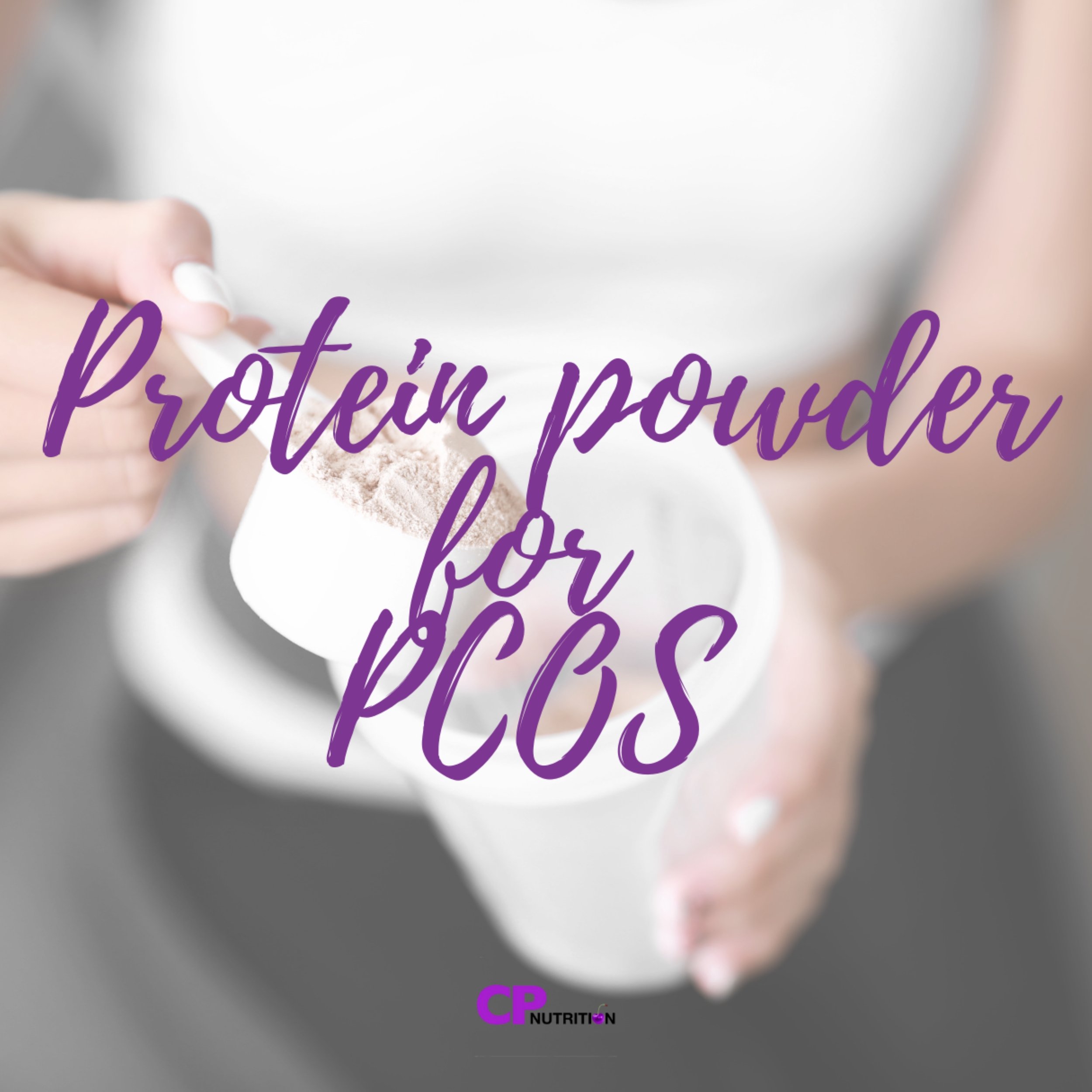
Protein powder for PCOS: Are some better than others?
Protein is the most filling or satiating macronutrient, and including enough protein in your diet can help to manage PCOS symptoms such as hunger and cravings, as well as help stabilise blood sugars and manage insulin resistance. For some, it is not always easy to get enough protein through food alone, and using protein powders can be an easy way to supplement the amount of protein in your diet.
The protein powder industry has grown massively, and with so many options out there, you may be wondering, what is the best protein powder for PCOS? In this article we will explore some of the most common protein powders and explain some of the benefits and drawbacks of each one. Let’s dive in.

Recipe: Protein Pancakes
These pancakes are a great way to use protein powder when you want a bit of a change from shakes and smoothies! With just a few staple ingredients, you can have a delicious high protein breakfast perfect for you and your family to enjoy.
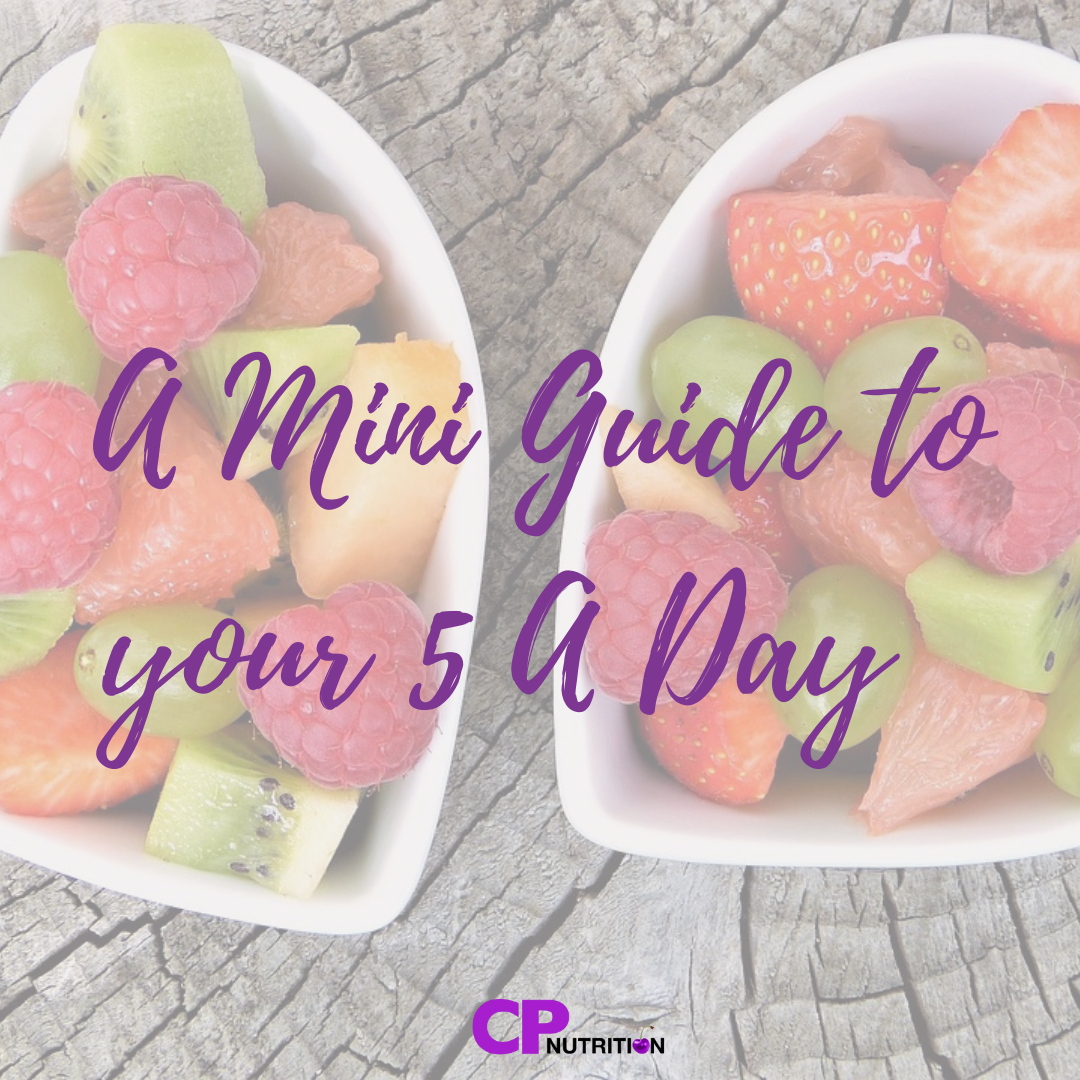
A Mini Guide to your 5 A Day
We’ve all heard how important it is to eat lots of fruits and vegetables, and some of you may even be familiar with the ‘Five a Day’ campaign. Have you ever thought of why this is and how it can be achieved in your day-to-day life?
This blog post will outline the main benefits of increasing your fruit and veg intake as well as provide you with some practical tips on how you can add to your diet to do so.

Omega-3 Fats: The What, The Why and The How
You may have all heard about omega-3 fats being very important for your health, but what exactly are they and why are they so important?
Here, we will answer these questions and we will take a look at what the best dietary sources of omega-3s are and if/when supplementation should be considered.

How Fibre Can Help PCOS
Fibre is a type of carbohydrate that can’t be digested by the human small intestine (1). All adults should aim to consume around 30g per day as part of a balanced diet, however recent studies have found that the average adult only consumes around 18g per day (2).
It can be difficult to meet the 30g a day guidelines if you don’t know the fibre content of the foods you typically eat, nor have the time to plan and prepare meals specifically to meet these recommendations. In this post we will discuss practical and easy ways to increase fibre intake and how this could help to ease some of your PCOS symptoms.

Dietary Strategies for Managing IBS
Irritable Bowel Syndrome (IBS) is one of the most common functional gastrointestinal disorders globally. This article will focus on some of the common dietary strategies out there that can help in managing the symptoms of IBS.
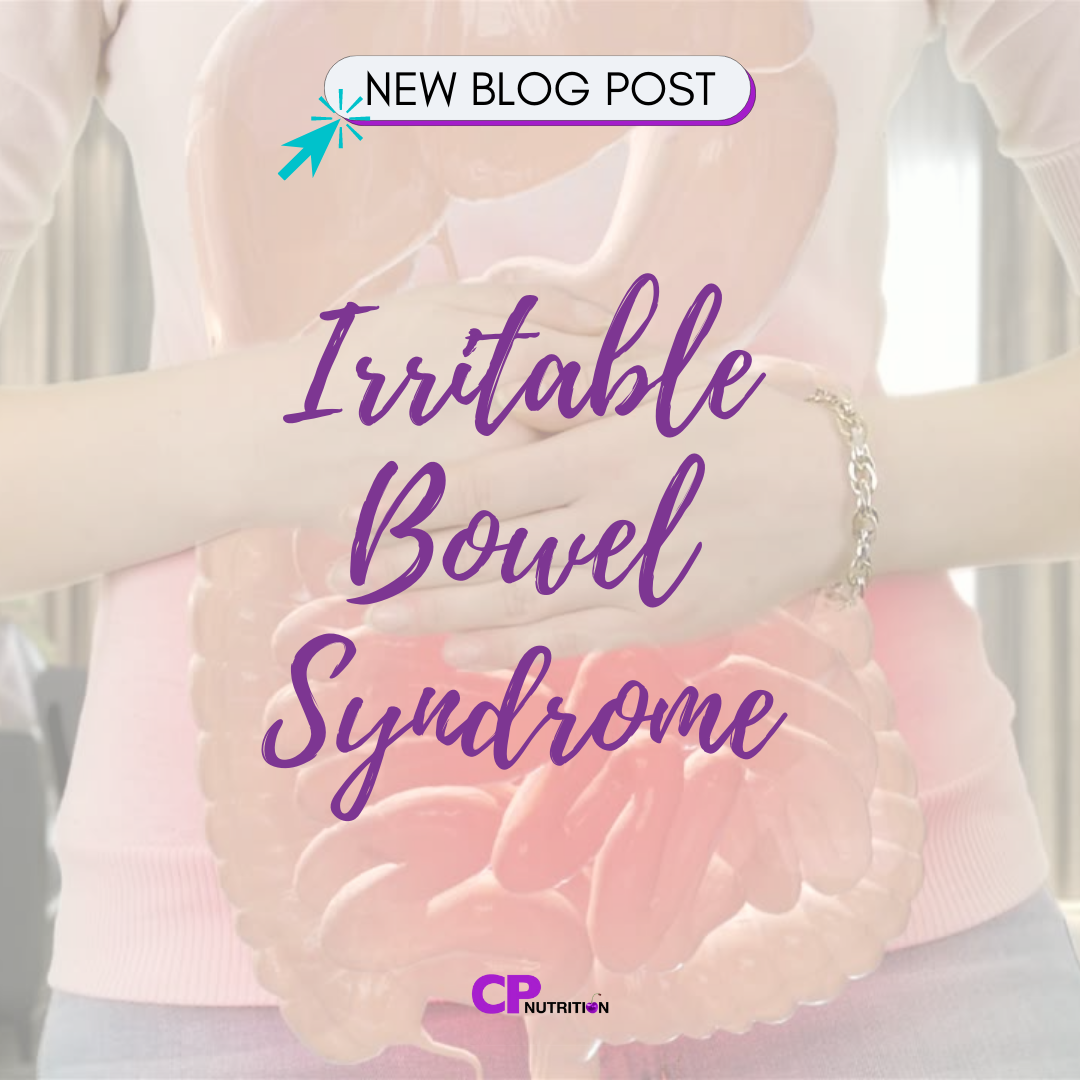
Irritable Bowel Syndrome (IBS): The Basics
April is Irritable Bowel Syndrome Awareness Month!
Irritable bowel syndrome (IBS) is one of the most common gastrointestinal disorders in the world, with around 11% of people affected globally! Although it is more commonly seen in women than men, and in people between the ages of 20-30 years, it can affect both adults and children.

PCOS & Eating Disorders
People with PCOS are more likely to have an eating disorder; in one study 21% of women with PCOS reported eating disorders compared to 4% of those without PCOS (3).

Why Fad Diets Won’t Help Your PCOS
With 54% of people resolving to eat healthier and 59% vowing to eat healthier in the New Year it isn’t surprising that diet and weight loss companies prey on people at this time of year and promote a variety of quick fixes to weight loss.


Recipe: Humble Hummus Recipe
Possibly my favourite recipe of all time as it is simple, nutritious, delicious and reminds me of home! Humble hummus!
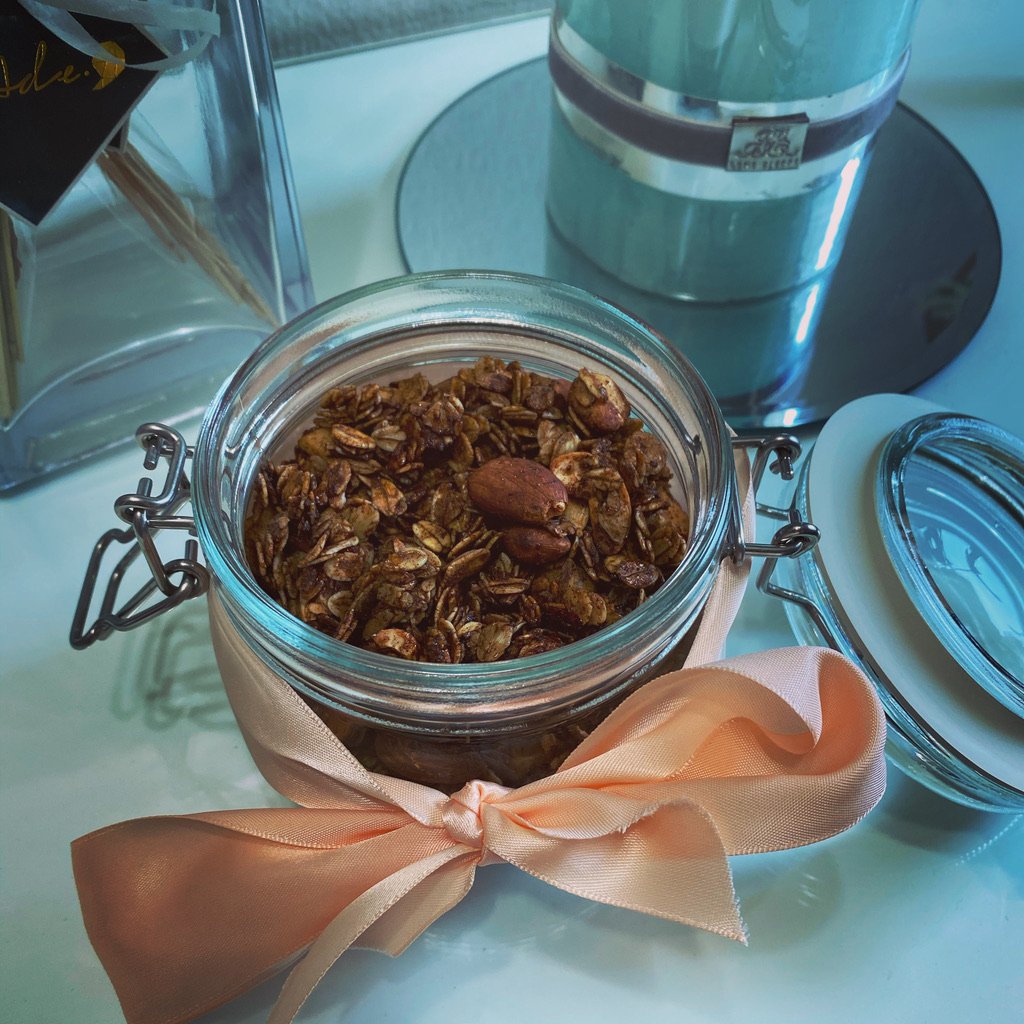
Recipe: Christmas Granola
Christmas is all about food and giving edible gifts is a great option if you are being environment conscious yet still want to show someone you care and appreciate them!

Do I Have to Go Dairy Free for PCOS?
With 17.4% of people with PCOS going dairy-free in an attempt to manage their symptoms (1) it can be tempting to cut out milk, cheese and yogurt and swap to non-dairy options.
Polycystic ovary syndrome (PCOS) is a chronic hormone disorder impacting 1 in 10 women in the UK (2). There are a variety of symptoms associated with PCOS including acne, oily skin, rapid weight gain, irregular periods, difficulty getting pregnant, excess hair growth and hair loss on the head (3).

Do I Need to Go Gluten-Free for PCOS?
Have you considered going gluten-free to manage your PCOS? You are not alone. Over 18% of people with PCOS said they were on a gluten-free diet to manage PCOS.

Do I Need to Go Carb-Free for PCOS?
If you’ve been diagnosed with PCOS you may have seen advice to go carb-free or low-carb or try diets like Keto and Atkins. But why is this dietary advice so commonly seen for people with PCOS and is there any truth behind it?

Why is it Important to Include Dietary Protein with PCOS?
Although there is no one way of eating for PCOS or a PCOS diet, there are several gentle nutrition tips we can implement into our diet to help with symptom management. One of these strategies is increasing the amount of dietary protein in the diet.

Should I Take Omega-3 Supplements for PCOS?
If you have PCOS then you may be overwhelmed with the choice of supplements out there which claim to help manage your symptoms.
Omega-3 fatty acids are well known for their health benefits, especially around heart and brain health, but are they beneficial for PCOS?
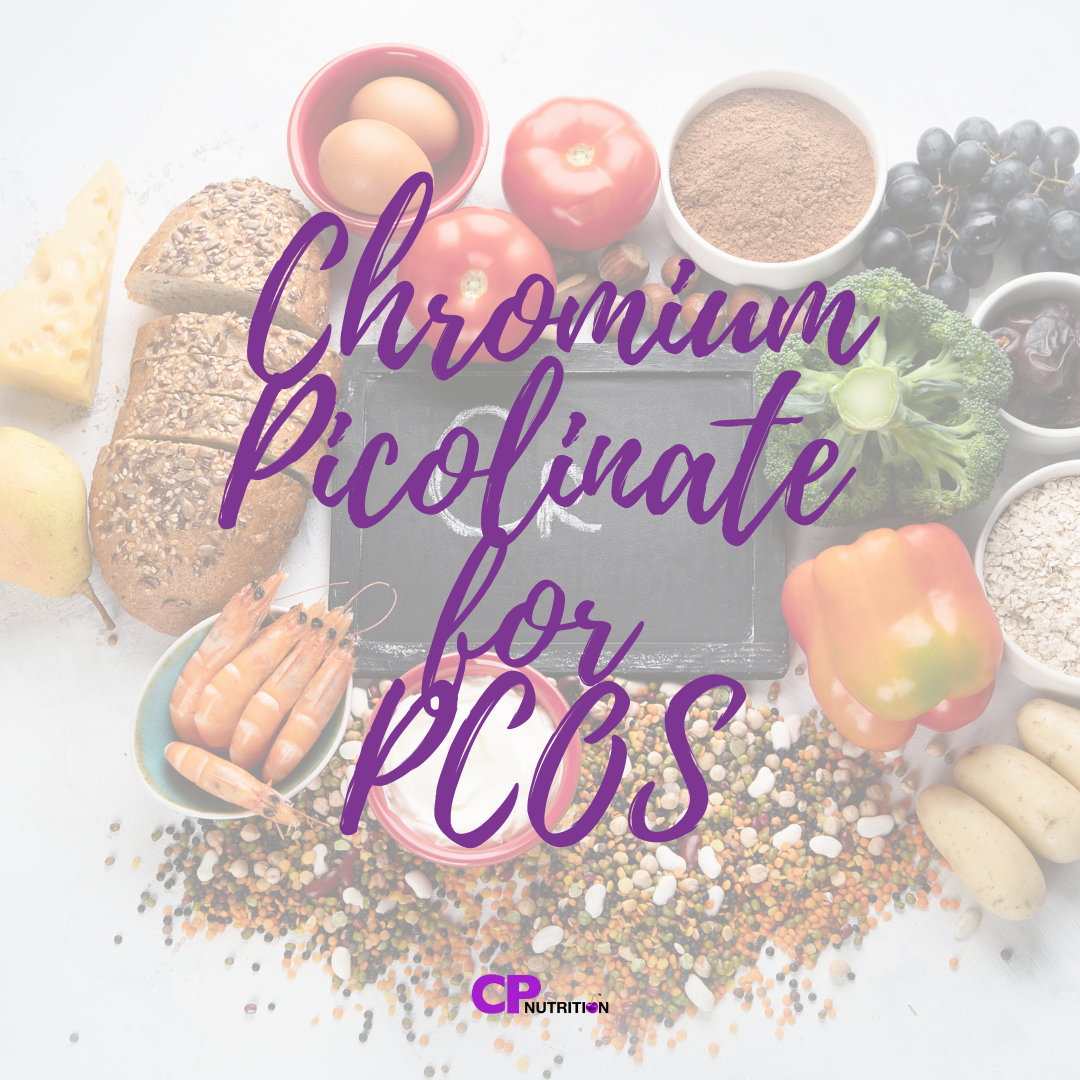
Do I Need to Take Chromium Picolinate for PCOS?
Chromium picolinate is a supplement consisting of trivalent chromium and picolinate acid. Trivalent chromium is typically considered an essential trace mineral as we can’t make it in the body. Picolinate acid is an organic compound added in order to enhance gut absorption (1).

Do I Need to Take Zinc for PCOS?
Zinc isn’t one of the main supplements recommended for people with PCOS and may not be on your radar. But there are some studies suggesting that people with PCOS have lower levels of zinc (1) so should we be supplementing with zinc too?

Do I Need to Take Supplements for PCOS?
Although supplements will not replace a nutrient-dense diet, for people with PCOS certain supplements may help with symptom management and to help replace low levels of certain nutrients.
Follow Claire @CP_NutritionRD





